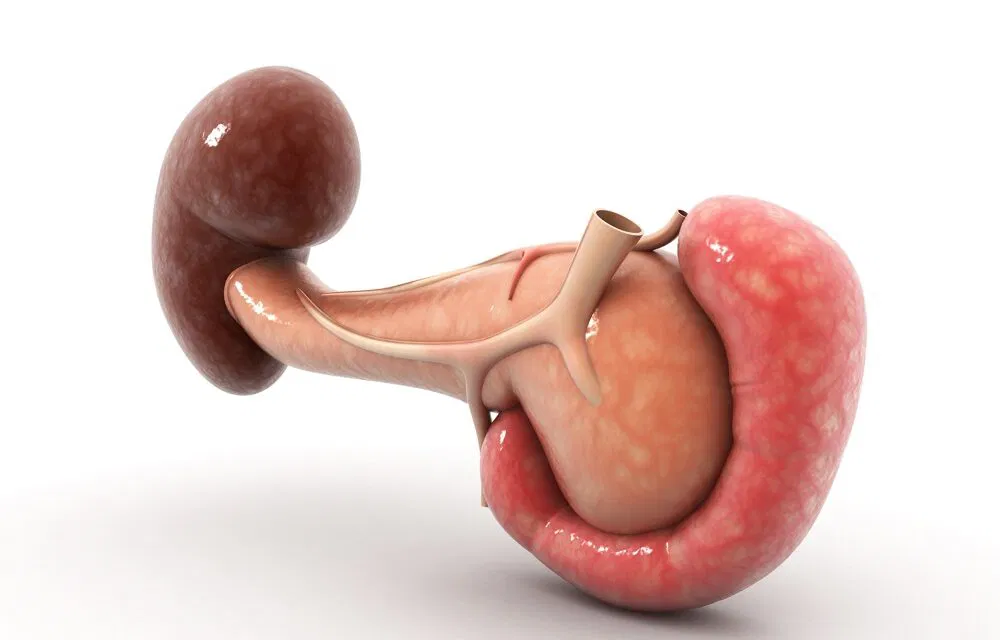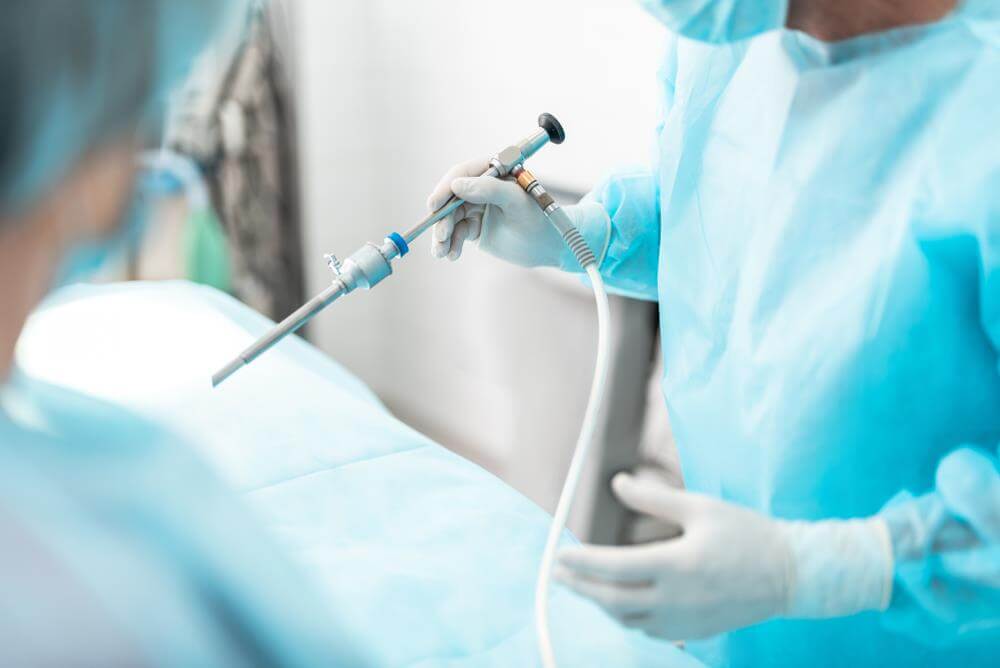Calls for Ukraine
Calls for Europe
Calls for USA

Spleen diseases are quite common and occur in approximately 15-20% of people. To better understand how this organ works and what are the spleen functions, it is important to first clarify where the spleen is located.
Where is the spleen located? It is located in the left part of the abdominal cavity, next to the stomach. Despite its relatively small size, the spleen is a vital organ. Spleen functions help to maintain the health of the body. The main spleen functions include blood to remove old or damaged cells, participating in the formation of immune system cells, and storing platelets needed for the blood clotting process.
Splenomegaly is an abnormal enlargement of the spleen that occurs due to infections, autoimmune disorders, blood diseases, or pathological changes in other organs, such as the liver. When the organ becomes larger than the normal spleen size, its ability to perform spleen functions effectively is reduced. This leads to a disruption in blood cell production, a decrease in the number of blood cells, which weakens the immune system and increases the risk of bleeding.
If you experience any symptoms that indicate a problem with your spleen, it is important to consult a doctor. Spleen diseases can lead to serious complications, including internal bleeding, sepsis, impaired immunity, and an increased risk of cancer. Timely diagnosis and treatment prevent severe health consequences.
With extensive experience in medical tourism, MedTour cooperates with leading medical centers worldwide. Our certified medical coordinators organize treatment in the best clinics, chosen based on the specific diagnosis, personal needs, and individual preferences of the patient.

Splenomegaly is one of the common reasons why the spleen hurts. Discomfort in the left hypochondrium can be associated with factors such as:
Since the causes of enlargement of the spleen are quite varied, it is possible to accurately answer the question of why the spleen hurts only after a comprehensive diagnostic examination.
Risk factors that contribute to the development of splenomegaly include:
It is important to understand that the spleen is closely connected to overall health, making splenomegaly a potential indicator of serious systemic issues. Early identification of the causes and prescription of effective treatment help to avoid dangerous complications.

The disease can remain asymptomatic for a long time. However, as it progresses, characteristic spleen symptoms appear, which are important to recognize in time:
It is important to remember that timely diagnosis is the key to successful treatment. An enlarged spleen, the symptoms of which range from mild to severe, requires immediate medical attention. If any of the spleen symptoms described above appear, it is recommended to undergo a comprehensive medical examination to rule out possible pathological changes.
If you are wondering “why does my spleen hurt when I have symptoms such as fatigue, fever or a feeling of heaviness in the abdomen?”, you need to seek help from specialists. MedTour has extensive experience in cooperation with leading clinics worldwide. Our medical coordinator will help you choose a country, the best clinic and a qualified doctor based on your preferences.

Diagnosis of an enlargement of the spleen involves several methods to determine the presence and degree of splenomegaly, as well as to identify its underlying causes. The key diagnostic approaches include physical examination (e.g. spleen palpation, spleen percussion), laboratory tests, and imaging studies:
Early detection of splenomegaly and its causes using these methods allows patients to answer the question “why does my spleen hurt?” and also enables timely treatment and helps prevent complications.
The choice of therapeutic strategy depends on the cause of the enlargement of the spleen, the degree of excess of normal spleen size, and the overall condition of the patient. As a rule, the normal spleen size in adults is about 12 cm in length, 7 cm in width, and up to 4 cm in thickness. When there is a significant deviation from these parameters, treatment is aimed at eliminating the underlying cause and restoring the body’s functions.
Pharmacological therapy may include the use of:

Surgery for splenomegaly may be necessary in the following cases:
Splenectomy, or the surgical removal of the spleen, is performed in cases when the organ is irreversibly damaged or poses a life-threatening risk to the patient. After the operation, the body partially adapts to the absence of the organ, however, the patient requires lifelong medical supervision and vaccination to prevent infections.
Splenomegaly in children requires special attention. It is important to minimize the risk of complications and preserve spleen functions, so conservative treatment is prioritized.
The question of how to treat spleen is very important. Effective splenomegaly treatment involves addressing not only the spleen symptoms but also the underlying cause of the enlargement of the spleen. The answer to the question of how to treat spleen can only be given by a qualified doctor after a thorough diagnosis. Based on the examination results, the doctor will create an individual treatment plan and provide detailed recommendations.
If you are wondering “why does my spleen hurt and what treatment options are available for managing splenomegaly?”, you should make an appointment with a specialist. MedTour has extensive experience in cooperation with leading clinics worldwide. Our medical coordinator will help you choose a country, the best clinic and a qualified doctor based on your preferences.
The prognosis for patients with an enlargement of the spleen directly depends on the cause, stage of the disease and the timeliness of treatment. In most cases, with effective treatment of the underlying condition that caused splenomegaly, the prognosis is favorable.
For example, if splenomegaly is caused by an infectious disease such as infectious mononucleosis, successful treatment of the viral infection usually results in restoration of normal spleen size. While many patients are wondering, “is mononucleosis dangerous?”, “is mononucleosis dangerous if left untreated for a long period?”, or “is mononucleosis dangerous for individuals with weakened immune systems?”, fearing complications, doctors assure that with timely diagnosis and proper treatment, this disease rarely leads to severe consequences.
Chronic diseases, such as autoimmune disorders or oncohematological processes, require longer-term monitoring and complex treatment. In such cases, the prognosis depends on the success of therapy, the state of the immune system, and the overall condition of the patient.
If you are wondering “why does my spleen hurt and what are the long-term outcomes of treating splenomegaly?”, you should consult with a specialist, who will provide you with answers to all your questions. MedTour has extensive experience in cooperation with leading clinics worldwide. Our medical coordinator will help you choose a country, the best clinic and a qualified doctor based on your preferences.

An enlarged spleen can lead to various complications, the most common of which are:
If you are wondering “Why does my spleen hurt, and should I be concerned about possible complications of splenomegaly like a ruptured spleen and bleeding?”, you should consult with a specialist. MedTour has extensive experience in cooperation with leading clinics around the world. Our medical coordinator will help you choose a country, the best clinic and a qualified doctor based on your preferences.
To reduce the risk of complications from splenomegaly, it is important to follow several recommendations:
Adhering to these recommendations can help reduce the risk of complications from splenomegaly and maintain overall health.

MedTour Company has been a reliable guide in the world of medical tourism for over 5 years. We collaborate with the best clinics and doctors specializing in the diagnosis and treatment of splenomegaly, providing our patients with access to advanced treatment methods.
We help organize treatment in world-renowned clinics, including:
These and other medical centers are known for their high level of service and modern treatment methods, which allows achieving excellent results in the treatment of splenomegaly.
Personalized Approach
We will help you choose the best clinic taking into account the features of your diagnosis, financial capabilities, and personal preferences. Our MedTour experienced medical coordinator will answer all your questions and provide comprehensive information about the treatment.
Organization of Consultations
We will arrange a preliminary online consultation with doctors, allowing you to discuss your questions and receive recommendations for further actions. This is especially convenient for patients who wish to consult with specialists in advance.
Comprehensive Support
MedTour handles all organizational aspects related to your treatment journey. We assist with document preparation, booking flights and hotels, and also providing comfortable transfer to the clinic. Our goal is to make the treatment process as convenient and safe as possible for you.
By choosing us, you gain access to the best clinics and doctors while ensuring your health is in trusted hands!
Please rate the work of MedTour
